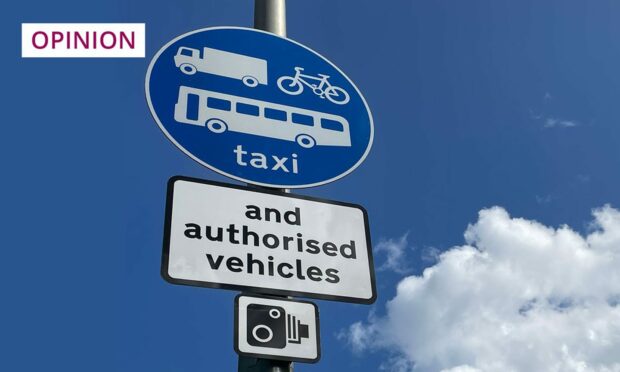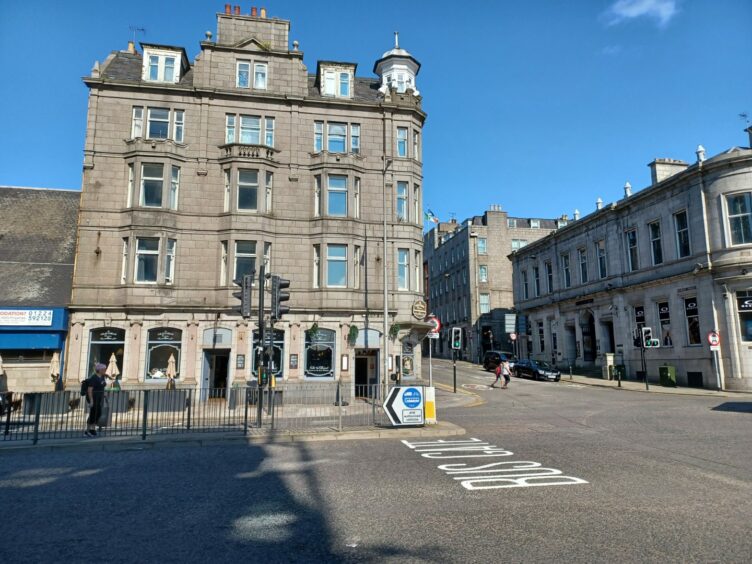I knew what he was talking about even though I didn’t understand a word he said.
He was holding court with a small group of friends or relatives at a table behind me in a coffee shop.
Held them in his grip as the troubles of the world were debated and put to right amid the breakfast clatter of cutlery and aroma of bacon and toast.
I wouldn’t say his audience was enthralled by his oratory; bemused more like – by the look in their glazed eyes.
“Right”, he began. “You go straight down from the top and you can turn left, but not right. Right?
“Coming back you can turn right, but not go straight up or left – right?”
He began to falter over where to turn next, as though satnav had lured him into an unexpected cul-de-sac.
A pause while everyone gathered around, including me at the neighbouring table, tried to digest this important information along with fry-ups and pancakes.
For some reason, I thought of Mr Pickwick’s breakfast briefing with associates Snodgrass, Winkle and Tupman before their disastrous journey in a horse-drawn “little green box on wheels” to Dingley Dell in The Pickwick Papers.
Not surprisingly, no one said anything.
They just blinked; me, too.
He paused for breath before launching into a new set of road directions for another part of town where a different but equally controversial bus gate was launched simultaneously by the council.
The speaker, to give him his due, was trying to lead his listeners through the latest confusing maze of Aberdeen bus gates.
But sounded like one of those hapless city council officials or councillors who have been trying to explain away their own version of a “triple-lock” on the city.
Not the state-pension formula we hear so much about, but a new triple set of bus gates the council foisted on its long-suffering populace to keep cars out of certain streets in the city centre.
However, taxis and street-clogging half-empty buses are still most welcome on these routes (half-empty because who in their right mind would get on a bus unless there was absolutely no alternative?).
Council has been dreaming up ways to tax the public
When the council is not zealously finding services to cut, they dream up new “taxes”.
Let’s face it, that’s what it will look like when bundles of cash start rolling into council coffers from bus-gate fines inflicted on unsuspecting drivers who drifted into the restricted zones.
Voters hate taxes, especially those delivered by stealth amid public confusion; they have long memories the next time they stare at a ballot box.
The London mayor experienced a similar backlash – on a bigger scale than that in Aberdeen, of course – over his introduction of the hated Ulez (Ultra Low Emission Zone) surrounding the capital.
Are bus gates accelerating Aberdeen towards its own Ulez moment?
If you set aside all the environmental hoo-ha about the merits or otherwise of this trio of miserable bus gates, tightening like a noose around the heart of the city, the financial impact on people is a serious consideration.
The traps – sorry, I mean gates – offer riches on a grand scale if income from fines generated by previous bus gates in Aberdeen is any guide; they were like the council winning big on the EuroMillions.
I must at this stage make a declaration in the public interest about my own personal experiences with bus gates.
I have “previous”, you see.
I was twice fined in days in an earlier bus gate experiment after driving through in blissful ignorance.
Warning signs are substandard
The warning signage was substandard, so it was hardly surprising.
I even retraced my steps on foot – and found it equally misleading at snail’s pace.
There seems to be something deeply undemocratic about what is going on.
Especially when one council boss was quoted as saying, “It is about stopping people who do not need to drive through the area from driving through.”
Whatever next?
Maybe the trend started during Covid when we were ordered routinely not to travel to certain places; our basic freedom of movement was banned.
What right have they to try this on again?
Well, Aberdeen Council has found a way of ordering us about with the help of obscure traffic regulations, which means they don’t have to consult the public in advance.
They are known as Experimental Traffic Regulation Orders (ETROs), but I prefer to call them DTROs (Detrimental Traffic Regulation Orders).
How can they be allowed to keep applying new ETROs when they have done more than enough experimenting already with previous controversial bus gates?
The regulations allow the council to do what it likes for 18 months before pretending to take any real notice of the public.
By then it’s probably too late; pent-up anger evaporates into placid compliance.
I suppose that’s what they are driving at.
David Knight is the long-serving former deputy editor of The Press and Journal



Conversation